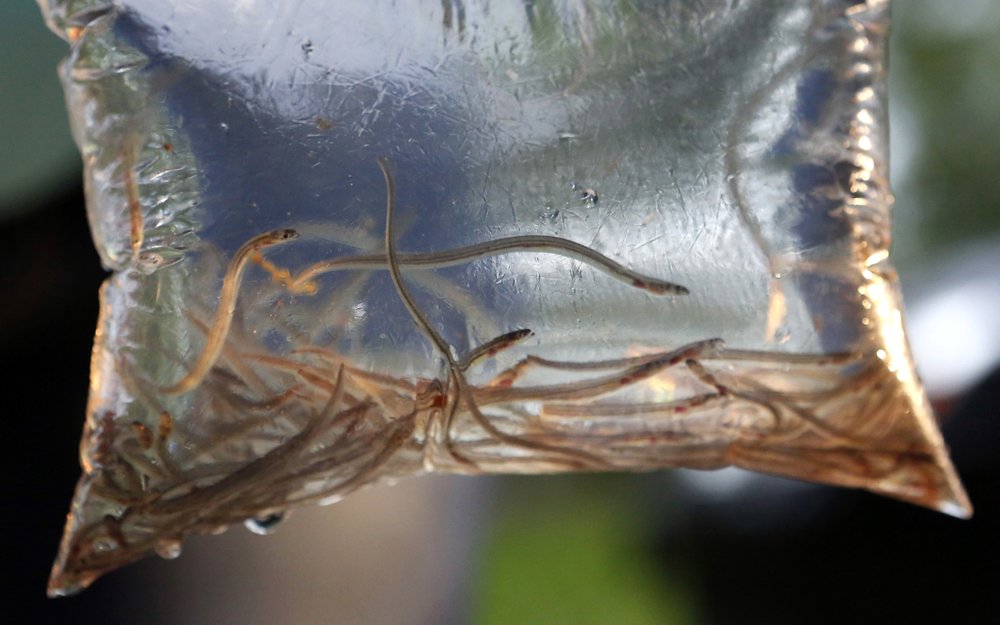

Maine’s baby eel fishermen are hopeful for a more stable season in 2021 as they seek one of the most valuable natural resources in New England.
The fishermen seek the eels, called elvers, so they can be sold as seedstock to Asian aquaculture companies. They are then raised to maturity and sold as food, such as sushi.
Maine has the only significant fishery for the eels in the US, and they sometimes fetch more than $2,000 per pound.
The season starts Monday, just over a year after the coronavirus pandemic upended the 2020 season. Prices for the eels plummeted last year because of disruption to the worldwide economy caused by the early stages of the pandemic.
The price of elvers to fishermen fell from $2,091 per pound in 2019 to $525 last year. The industry suffered because eels are almost exclusively a restaurant product, and the pandemic shuttered restaurants the world over, said Mitchell Feigenbaum, an elver dealer.
But the recovery of the economy in China, a major buyer, bodes well for this season, Feigenbaum said.
“The demand is getting better. Price will be significantly improved compared to last year, but far below where it was in 2019,” he said.
Elver fishermen in Maine also had to contend with the impact of the pandemic on their ability to fish last year. The state temporarily closed the fishery last year to try to halt the possibility of spread of the virus. Eventually, Maine fishermen harvested almost all of their baby eel quota, which is a little less than 10,000 pounds for the entire fishery.
Some precautionary measures will be in place again this year, the Maine Department of Marine Resources has said.
One rule allows elver license holders to let another license holder use their gear and catch their quota for them. That allows fishermen who might be at greater risk from coronavirus to harvest their quota by proxy rather than risk exposure to the virus.
Fishermen harvest the elvers with nets in rivers and streams all over the state. Some are in the most remote areas of Maine and others are in Portland, the state’s largest city. Fishermen, who sometimes line riverbanks in a typical year, are expected to remain 6 feet apart while fishing once again this year, the marine resources department has said.
Darrell Young, co-director of the Maine Elver Fishermen Association, said harvesters are hopeful for a bump in price this year.
“I don’t think it’ll be a problem catching the quota,” Young said. “I think the price might creep up as the season goes on.”